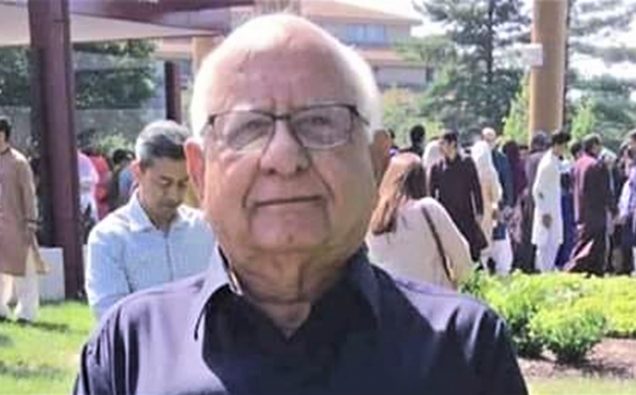
Fourteen centuries ago, Hazrat Ali had cautioned on the perils of pandering to the privileged few. The contention of the great sage – widely recognized as the fountainhead of Sufism – was that whatever you do for the privileged, they would still be bereft of gratitude because they have absorbed a sense of entitlement.
In striking contrast, Hazrat Ali posited that assisting the average citizen would reap rewards, because it is he who is the pillar of the state. But in the stampede to get close to bask in the false glamour of ruling elites, the real heroes in our midst often get overlooked, bypassed, and trampled. They often are taken for granted and missed only when gone, leaving behind an irreplaceable empty space.
One such person in the Washington community was Ali Akhter Abbasi, a veteran social activist who left for the Hereafter on Saturday afternoon, September 28, 2019. Imbued with community spirit, Abbasi was at the forefront whenever somebody was in distress, acting with no expectation whatsoever of a transactional quid pro quo.
Abbasi was first and foremost a humanitarian. There was no “me-first” in his life. He put others in front of the queue.
In October 1980, he was serving as Assistant in the Education Division at Washington’s Pakistan Embassy when General Zia addressed embassy staffers for the first time since the execution of Zulfiqar Ali Bhutto. Abbasi, a salaried employee with no fallback position, had conviction and courage, which was on full display when he dauntlessly questioned Zia on the direction Pakistan had taken under his rule. The usually unflappable Zia uncharacteristically lost his cool.
On the Wednesday morning of April 4, 1979, the day Bhutto was hung, Abbasi called in a disturbed state, telling that he had taken the day off from the embassy, and wanted to meet me. So, we went to Arlington National Cemetery and, in that serene environment amidst immaculately laid-out rows of white tombstones, we walked and talked for hours ruminating about the possible repercussions for the country. He alone joined me when I took the initiative of organizing Bhutto’s ghaibana namaz-e-janaza at Washington, DC’s iconic Islamic Center on Embassy Row. The reluctant imam was dithering but we made the point that Bhutto was the incumbent chairman of the OIC and because of that and his also being a Muslim, he could not be so deprived. I recall the Voice of America (VOA) carried it as its news headline. Abbasi and I knocked at each office door at the nearby Embassy of Pakistan, alerting them of the nama-e-janaza on Friday, April 6, 1979. None of the officers, many of them Bhutto appointees, came. But the lower staff did, proving once again Hazrat Ali’s adage about the virtues of the average citizen.
When Bashir Kashmiri, a blind student from Azad Kashmir, was given a scholarship to study at George Washington University, it was Abbasi who provided constant support.
Abbasi understood the significance of sustaining connectivity among friends. Often, he would ferry friends in his car, take them to a restaurant, fete them to a sumptuous meal, and drop them off, just for the sheer joy of it. In difficulty, you could count on Abbasi. On a desolate day, you could bank on his ever-smiling face.
Throughout, he retained his moral compass, striving to help others, and to do the right thing. For years, he was trying to build a road to connect his remote village near Murree, an effort which gained fruition thanks to his perseverance, transforming thereby the lives of the village folk.
Never once did I see Abbasi act unkindly with anyone, irrespective of class, rank, or socio-economic status.
In search of outside heroes, we sometimes may be overlooking the role models hiding in plain sight in our midst.



















There’s no doubt Mowahid Hussain Shah is a writer with picture perfect memory and a historian of his sort. He’s an asset for our community. May Allah give him a long healthy life.